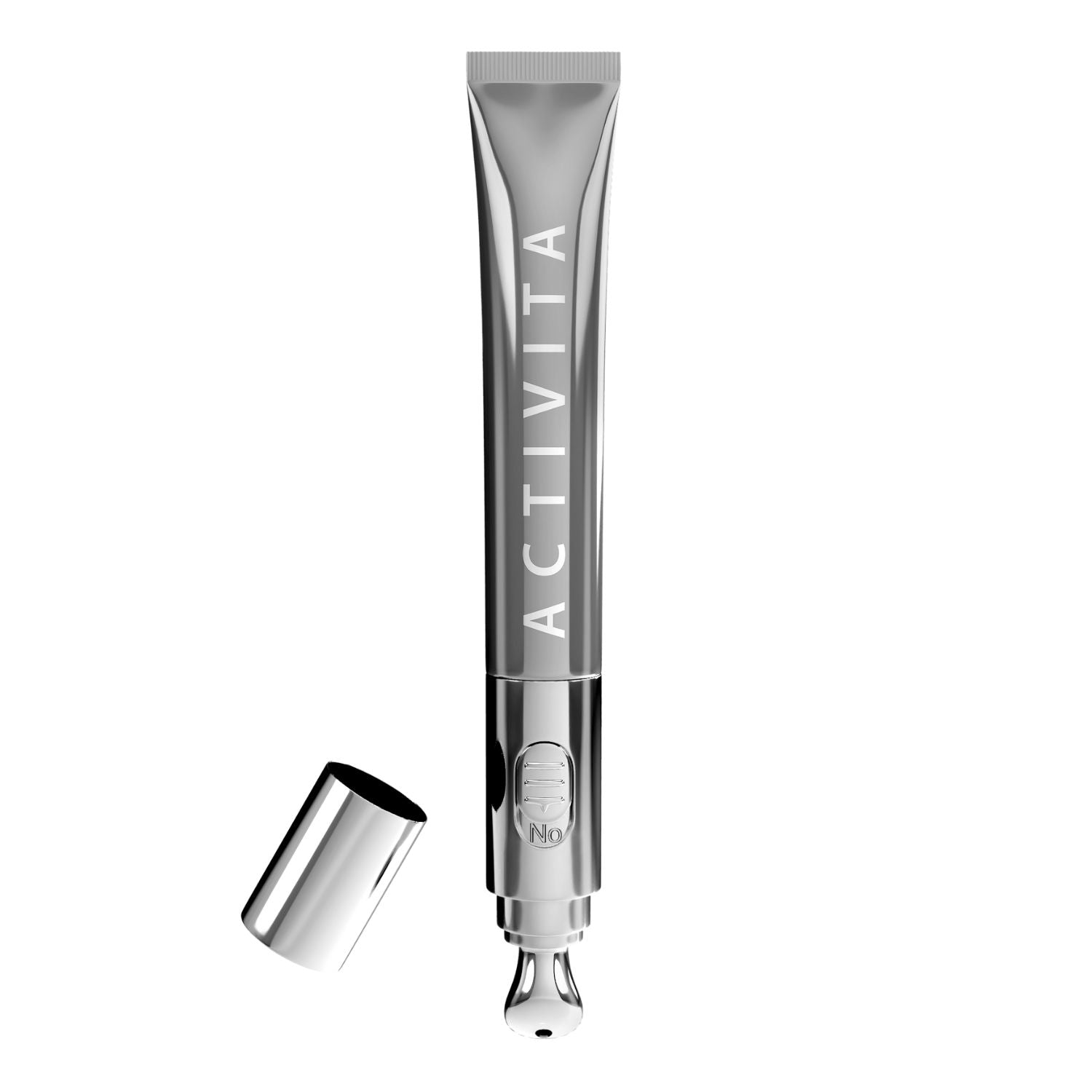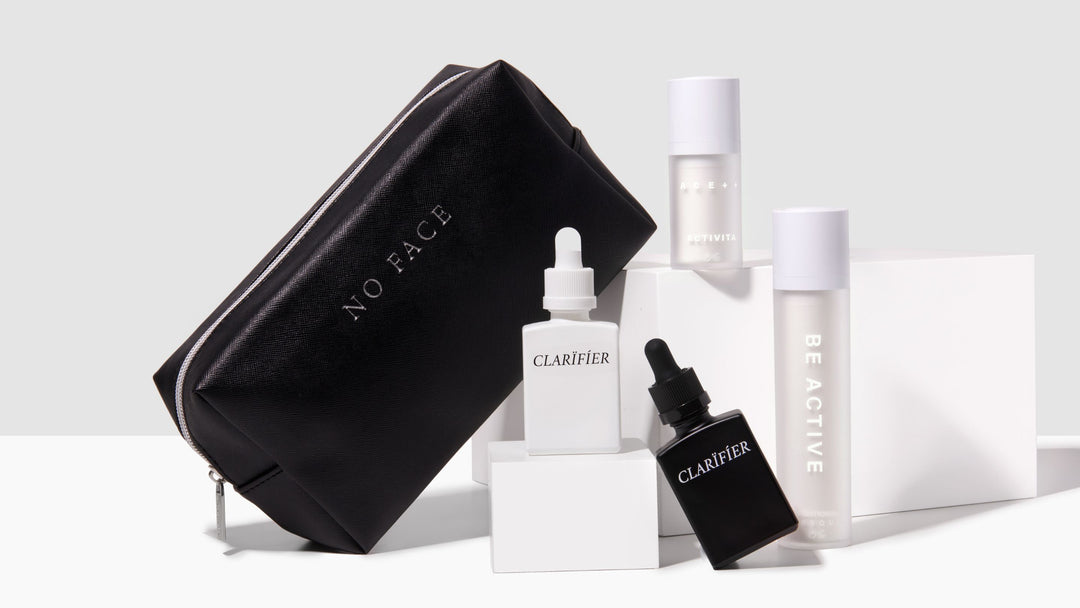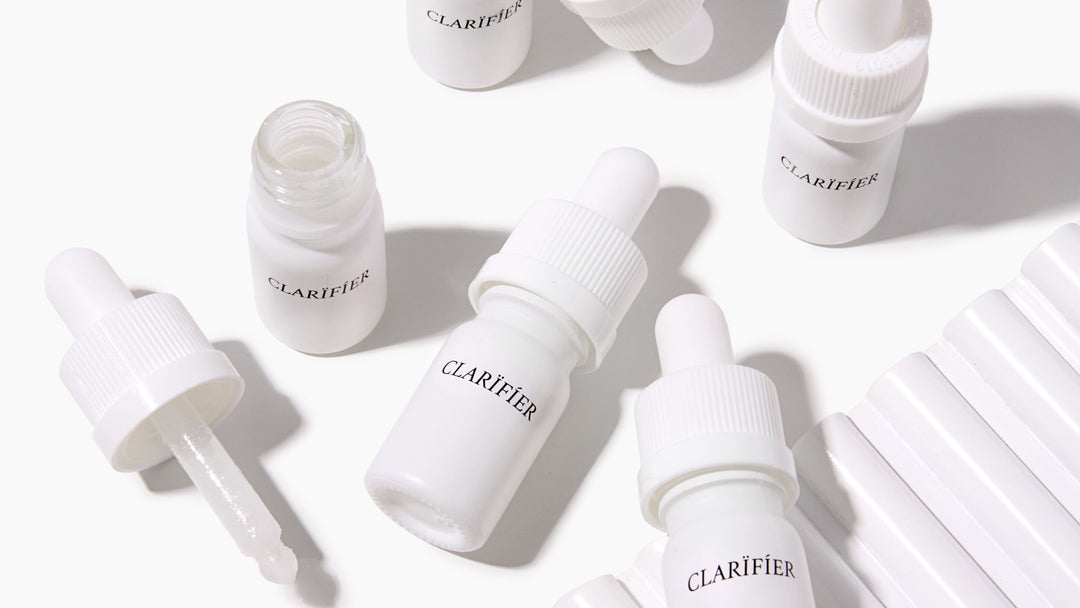Ultimate Guide for Oily Sensitive Skin Types

Oily skin is one of the most common skincare concerns, and finding the right solution can be a journey, to say the least. Symptoms of oily skin include a shiny or greasy appearance, large visible pores, and "thick" or "rough" looking skin. On its own, oily skin is nothing to be concerned about. However, excess oil production can become more of a problem when it begins to clog pores, causing the development of blackheads and acne.
Oily skin is also often accompanied by heightened skin sensitivity, as the oil generated creates a sort of external barrier. When this barrier is removed, the skin underneath is often left feeling raw and exposed. If these symptoms sound like what you’re experiencing with your skin, you’re in luck! We’ve created this ultimate guide for oily sensitive skin types to help you understand the cause of and solution to your problem. Read on to learn our science-backed steps to managing your oily, sensitive skin.
Causes of Oily Skin
To be able to better manage your oily, sensitive skin, you should first understand what could be causing it. There are several different things that could be causing your oily skin. First and foremost – it could be your genes. Genetic oily skin is caused by larger sebaceous glands, which produce more oil. Since this is hereditary, it's likely that if your parents have oily skin, you will too. Your skin type isn't something you can change, but it is definitely something you can manage with a proper skincare routine.
Speaking of skincare routines, yours might be causing your oily skin. Unfortunately, using drying products will not cure your skincare woes. In fact, products that use alcohol and other drying ingredients can actually cause more oil production. It sounds counter-intuitive, but when you use harsh, drying products to strip all of the oil off your skin, it can send your sebaceous glands into “overdrive”, resulting in quicker oil production to compensate for the loss. It's also common for those of us with oily skin to use abrasive exfoliators to attempt to even out the coarse skin texture associated with oily skin. We're sorry to break it to you – this is also doing more harm than good. These products will only cause more irritation and sensitivity in your skin. In some cases, you could even cause micro-tears in your skin, which will be much harder to heal in the long run.
Hormones are another factor that impacts your sebum production. Your hormone levels constantly fluctuate, especially around puberty, menstruation, pregnancy and menopause. Fluctuating hormones can increase your sebum production at certain times of the month, and you may notice that some weeks your skin is oilier or you have more visible pores. Your hormones are also constantly influenced by your diet and lifestyle. For example, stress and illness can prompt hormonal changes that stimulate sebum production. In addition, if your diet includes high amounts of carbs, excess sugar or a lot of dairy, this could also increase your sebum levels.
Your environment also influences your skin, meaning you may experience different skin concerns during different seasons. For example, in humid climates, your skin will likely produce excess sebum to help your skin breathe and cool down. On the other hand, in colder weather, our skin experiences what’s known as transepidermal water loss, or TEWL. TEWL is where water evaporates out of our skin at a faster rate than usual, causing dehydration. As a response, our sebaceous glands attempt to compensate for the water loss by replacing it with oil, causing oily skin. When experiencing TEWL, our skin sensitivity is also increased due to the loss of water leaves our skin barrier vulnerable.
How to Manage Oily Sensitive Skin
The best prevention for oily skin is to find a consistent skincare routine and stick to it. Remember that this won't happen overnight, but by following these tips and recommendations, you will be able to see a significant improvement in your oily, sensitive skin. It's essential to hydrate your skin both internally (by drinking water) and externally (with hyaluronic acid and moisturisers). Hydrated skin won't overcompensate for lack of moisture with oil production. You should also remember that genetic oily skin can’t be changed, but it can be managed. With the proper skincare routine, you can stop causing further damage and excess oil production in your skin to find a balance.
Step 1: Use a Gentle Face Cleanser
Physically removing the oil from your skin is the first step to managing your oily, sensitive skin. It's essential to use a gentle cleanser that doesn't contain harsh, drying alcohols. Your face cleanser should contain hydrating ingredients like hyaluronic acid to rehydrate the skin as it removes the oil. Our H4O™ RESOLVE HD WASH FOAM (FACE CLEANSER) does all of this and more. H4O™ RESOLVE is an alcohol-free, molecular foaming cleanser that penetrates your pores to decongest while rehydrating your skin with hyaluronic acid at the same time. H40 deionised water allows the oxygenation process to initiate foaming, targeting and dissolving pollutants on your skin. The amino acid derivatives in this cleanser work to disconnect impurities and oils from your skin, leaving a clean (but not dry) surface ready to be fortified with hydrating and barrier-repairing ingredients.
When we say to use a gentle cleanser, this doesn’t just apply to your face cleanser itself. It’s also important to use gentle methods to cleanse your face. Rubbing your delicate skin with harsh towels or using abrasive scrubs or tools on your face can cause further irritation to your already damaged skin barrier. Rather than these harsh methods, we recommend double cleansing for removing makeup and excess oil. If you really feel like you need something more to get your skin truly clean, a gentle, specially designed face cloth like our FACEPAL Pores could be right for you. Facepal is scientifically researched and dermatologically developed for sensitive skin types. The reduced friction fibres gently reach into your pores for gentle and effective daily cleansing. All traces of pollution, congestion and products can be wiped away without abrasiveness. Facepal works with just water or can be used with your face cleanser for a deeper clean.
Step 2: Use a Gentle Exfoliator in your Skincare Routine
While over-exfoliating with abrasive products can harm your skin, gentle exfoliation two to three times per week will assist your oily skin in shedding away excess oil and dead skin cells. Using a scrub-free exfoliator, like our CLARÏFÍER HIGH DEFINITION HYDRO EXFOLIATOR, is essential to avoid causing additional damage or micro-tears in your skin. CLARÏFÍER works to penetrate your outer layers of skin, whisking away both superficial and embedded impurities.
The scientific formula helps boost your skin's natural exfoliation process, meaning the benefits of this product outlast its use. It also replenishes moisture and reduces environmental stressors, making this the perfect exfoliator for sensitive skin types. Think clearer, smoother skin with reduced blackheads. With no harsh AHA, BHA or PHA acids, CLARÏFÍER works to deliver gentle and safe exfoliation for your oily, sensitive skin. Remember to only do this step in your skincare routine two to three times per week, or every other day, to avoid causing further irritation.
Step 3: Nourish your Skin Barrier with Vitamin Serums
After clearing your skin of excess oils and dead skin cells, you'll want to nourish and fortify your damaged barrier with hydrating and restoring serums. Vitamin B, commonly found in the form of niacinamide, will build your skin barrier strength, helping skin become more resistant over time. Another benefit of niacinamide is its ability to repair and correct blemishes by increasing cell turnover. Faster cell turnover will bring impurities to the surface in a process known as “purging”. You can think of this as your skin rapidly ridding itself of what it doesn’t need, leaving behind a bright, glowing canvas.
Hydrating your skin barrier is essential to keeping oils at bay since hydrated skin won't need to overcompensate with excess sebum. Our ACTIVITA SUPREME SKIN VITAMIN B COMPLEX is designed to do just that. This complex Vitamin B serum hydrates, corrects and restores balance in your skin to strengthen your barrier and build resistance.
Another vitamin you should incorporate into your sensitive, oily skincare routine is Vitamin A, which is usually found as retinol in skincare. Retinol is a hero ingredient in skincare, known for its skin correction and anti-aging abilities. However, retinol is known to have uncomfortable side effects like redness, peeling, and even burning when not introduced properly. So, you'll want to start by using a clinical-grade, stable hydro retinol like DERMATOLOGY SCIENCE FORMULA EVOLVE HYDRO RETINOL SERUM.
We recommend introducing retinol slowly, using it just once a week for the first month to allow your skin to get used to the highly potent active ingredient. Our Evolve Hydro Retinol Serum is perfect for both newbies to retinol and those who’ve been using retinol for years. Evolve contains a hydrogenated form of retinol that is optimised for skin application without leaving a greasy feeling. In addition, the smaller molecular size is easily absorbed by your skin, allowing it to work to enhance your skin's texture.
Step 4: Lock in your Vitamins with a Hydrating Moisturiser
Though serums are hydrating, they usually don’t contain the ceramides or fatty acids needed to seal moisture in. So, after applying your skincare serums, it's crucial to lock everything in with a hydrating and nourishing moisturiser, like ACTIVITA® VITAL CREAM. The molecular science used to develop Vital Cream delivers the barrier building properties your sensitive, oily skin type needs to be able to repair. Ingredients like micro ceramides, Vitamin E, Vitamin B5 and micro squalene will rehydrate your damaged skin without leaving a greasy feeling or increasing oil production. In addition, vital Cream only contains ingredients that will benefit your skin and is fragrance-free, making it perfect for sensitive skin types.
NO FACE is an innovative next-generation clean skincare brand. Next-Gen Skincare means NO Toxin, NO Fragrance, NO Fake claims, NO Bias against skin types, NO Unfair treatment to the environment and workers. With patented technologies and researched new ingredients that are more effective, selective, sustainable, and bio-friendly, NO FACE is a leading social impact-aware skincare brand towards 100% sustainability.
Take a 4D assessment to find out your real skin type. Consult with our accredited advisor for skin-matching products through support@noface.com.au
For more information, visit noface.com.au












Am looking forward for best products for oily skin and acne and sensitive skin. I tried other products but it doesn’t work
Visa
tfbswmyst http://www.ga9xf101e59bf0x6tu9d302kk39u85yws.org/
[url=http://www.ga9xf101e59bf0x6tu9d302kk39u85yws.org/]utfbswmyst[/url]
atfbswmyst
Visa
awlkssxotz
[url=http://www.g0m649gg68a79d8cca553joh3a4mia59s.org/]uwlkssxotz[/url]
wlkssxotz http://www.g0m649gg68a79d8cca553joh3a4mia59s.org/
icon-chevron
akcyrmgsm
[url=http://www.g67b7k2359a91v11b4k4mg2leja1msm7s.org/]ukcyrmgsm[/url]
kcyrmgsm http://www.g67b7k2359a91v11b4k4mg2leja1msm7s.org/
icon-chevron
[url=http://www.gwfz85sgj5v18pdjg464051fx312ik71s.org/]uvddqrzpbon[/url]
avddqrzpbon
vddqrzpbon http://www.gwfz85sgj5v18pdjg464051fx312ik71s.org/
Leave a comment